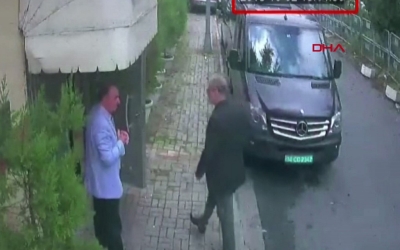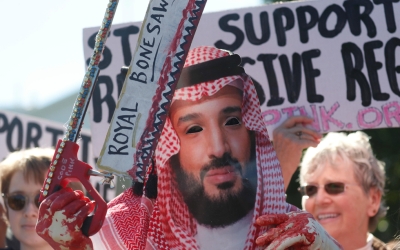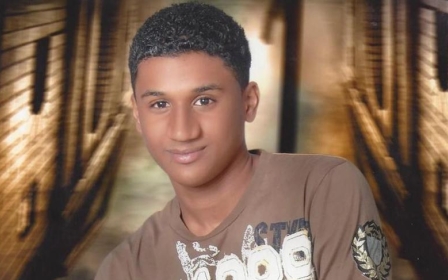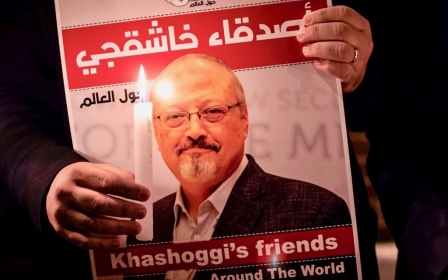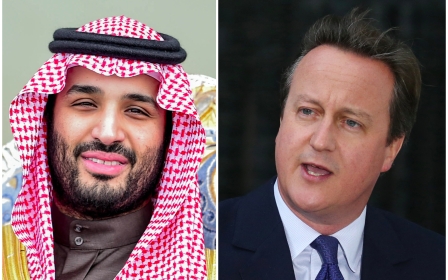Khashoggi killers flew to Egypt to collect drugs used to poison journalist: Report
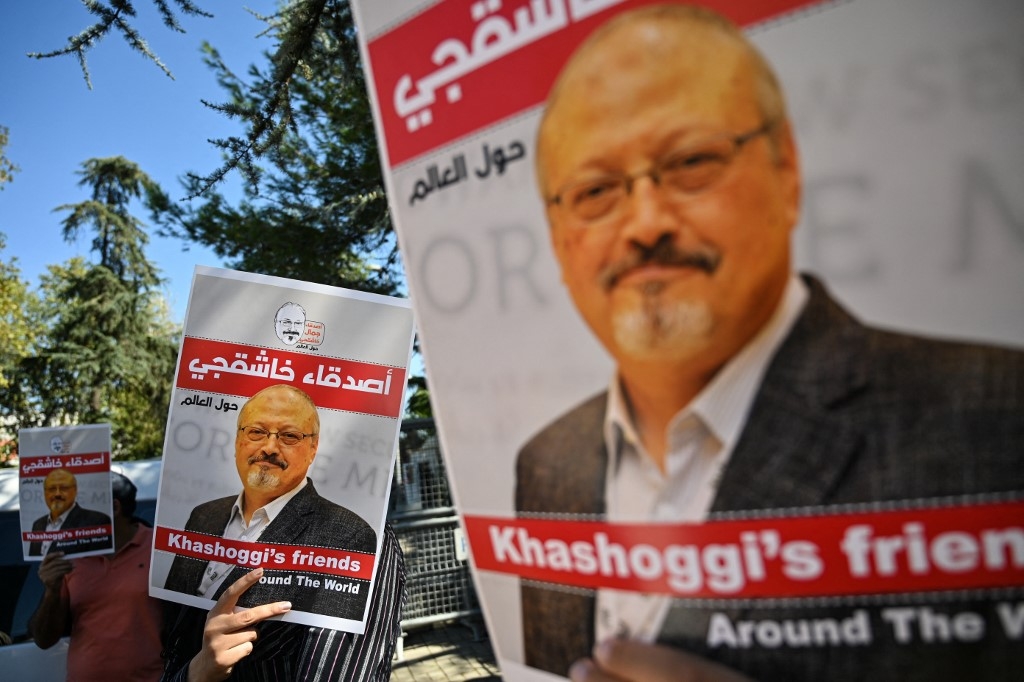
The Saudi operatives who killed Jamal Khashoggi in 2018 flew to Egypt to pick up "illegal" drugs that were later used to kill him, according to a report by Yahoo News citing notes that summarise secret Saudi interrogations of the murderers.
On 2 October 2018, the Gulfstream jet carrying the killers stopped in Cairo before ultimately landing in Istanbul, the news site reported in a new podcast series on Khashoggi's murder. However, it was unclear what the drugs were or who provided them.
After entering the Saudi consulate in Istanbul, Khashoggi quickly realised he was to be forcibly drugged and "tried to run away", according to notes from Saudi prosecutors during a closed-door trial of the killers.
He was then pinned to a chair inside the office of the Saudi consular general, where Salah Tubaigy, a forensic doctor from the Saudi Ministry of Interior, "injected Khashoggi in his left arm [with] a drug whose sale is illegal and which he brought from Cairo in high dosage that would be enough to kill him", according to the notes obtained by Yahoo.
The new detail points to an indication of Egyptian operatives being involved in the killing of the Saudi journalist and also contradicts claims by Riyadh that the hit team had no intentions of killing Khashoggi prior to landing in the Turkish city.
Richard Clarke, chair of the Washington-based think tank the Middle East Institute, said the close working relationship between Egypt and Saudi Arabia explains the Cairo stopover.
"There's a hell of a lot of Saudi government money that goes into propping up” the Egyptian government, Clarke, who was a White House counterterrorism adviser under Presidents Bill Clinton and George W Bush, told Yahoo News.
"And you can get a lot in return for that money. I don't think they had to reveal the target. Just like, ‘Hey, you've got this stuff in your inventory. We ran out. Can we stop by and get a few sticks of butter?’ I think that the answer for the Egyptians, that's a no-brainer."
The Egyptian and Saudi embassies in Washington did not respond to Middle East Eye's request for comment by the time of this article's publication.
'We have our guy at Twitter'
Khashoggi, a Middle East Eye and Washington Post columnist, was killed inside the Saudi consulate in Istanbul on 2 October 2018 after he entered the premises to obtain paperwork for his planned marriage to his Turkish fiancee, Hatice Cengiz. His remains are yet to be found.
Saudi authorities had initially insisted that Khashoggi left the building alive, taking two weeks to acknowledge that the journalist had been killed. Still, Riyadh claims that the assassination was a rogue operation that happened without the approval of top officials.
Shortly after US President Joe Biden was sworn into office earlier this year, the director of national intelligence released a report that concluded Crown Prince Mohammed bin Salman (MBS) had approved the murder.
The new eight-episode podcast series by Yahoo News, titled Conspiracyland, provides a number of other new details into the killing of Khashoggi.
Yahoo reported that MBS had overseen an espionage scheme targeting Twitter, in which two Saudi spies stole phone numbers, email accounts, direct messages and other personal information of Saudi government critics, including a close associate of Khashoggi.
"It was us. We did that. We have our guy at Twitter," MBS told former top Saudi counterterrorism official Saad al-Jabri, according to an account provided by Jabri's son Khalid on the podcast.
A US intelligence source also confirmed to Yahoo that American officials tracked nearly a dozen phone calls between MBS and top adviser Saud al-Qahtani during the days surrounding the Khashoggi operation.
The notes seen by Yahoo also detail that one of the assassins from the "Tiger Squad" was given the job of destroying the video cameras inside the consulate and removing and destroying the hard drives that recorded Khashoggi's murder.
This article is available in French on Middle East Eye French edition.
Middle East Eye delivers independent and unrivalled coverage and analysis of the Middle East, North Africa and beyond. To learn more about republishing this content and the associated fees, please fill out this form. More about MEE can be found here.


